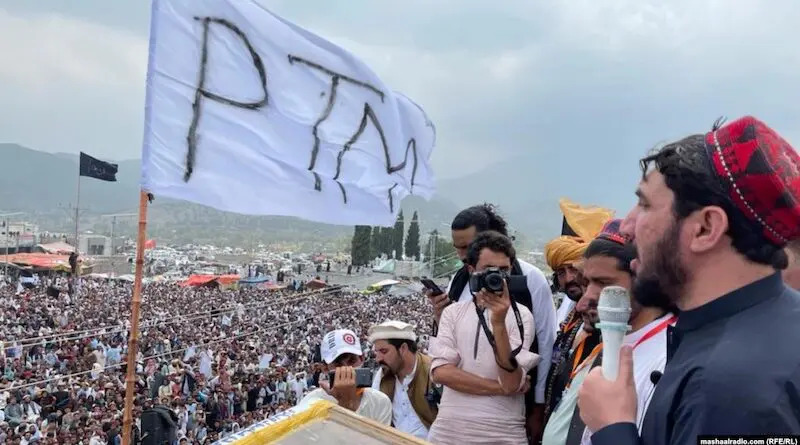PTM is a group that spreads division, not a true representative of the Pashtun community. Since its formation in 2018, PTM has adopted a confrontational approach with state institutions instead of engaging in constructive dialogue.
It falsely claims to represent the Pashtun community, a misleading propaganda orchestrated by its foreign backers and Afghan diaspora.
PTM avoids participating in electoral politics due to its lack of public support. Engaging in elections would expose its limited support, which is mainly confined to tribal areas.
Even in its so-called Pashtun National Jirga, PTM has failed to unite any significant force. The massive public turnout in the 2024 general elections has already proven that the Pashtun community has rejected PTM.
PTM incites violence and hatred against the state. Despite its leaders presenting it as a peace-loving, anti-war movement, PTM’s rhetoric is filled with undemocratic attitudes, hateful speeches, and racism.
Manzoor Pashteen, in his speeches, incites people against security forces and openly threatens rebellion against the military. PTM leaders try to divide Pashtuns and sow doubts about counter-terrorism operations, aiding the enemies’ malicious agenda.
PTM prioritizes personal interests over public welfare, with its politics centered around self-gain. Politically aware Pashtuns are aware of PTM’s divisive politics and stand with the state and security forces fighting against terrorists.
PTM and NDM Exploit Terrorism for Political Gain
PTM and its ally, the National Democratic Movement (NDM), always exploit terrorist incidents for their own interests, hindering the state’s ongoing struggle against terrorism.
Neither PTM nor NDM ever condemns acts of terrorism. Instead, they unfairly criticize security forces after each terrorist attack, pushing their political agenda at the expense of Pashtuns.
Using such incidents for political scoring is condemnable, and brave Pashtuns will always reject it.
PTM: The Political Face of Khawarij
PTM’s baseless criticism of security forces creates an environment that gives the Khawarij freedom of action in tribal areas, further destabilizing the region.
PTM’s activities have always been beneficial to enemy organizations, clearly indicating that PTM and Khawarij are two sides of the same coin.
If PTM truly cares about the welfare of the Pashtun community, it must abandon its politics of confrontation and adopt a constructive approach. Positive relations, rather than conflict, can provide greater benefits and prove to be better for the Pashtun community’s interests.


